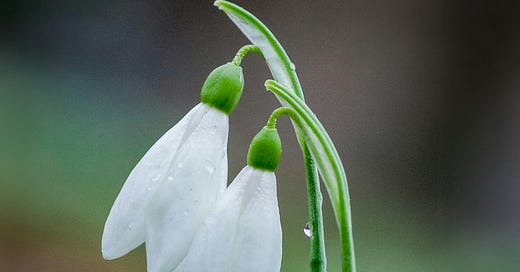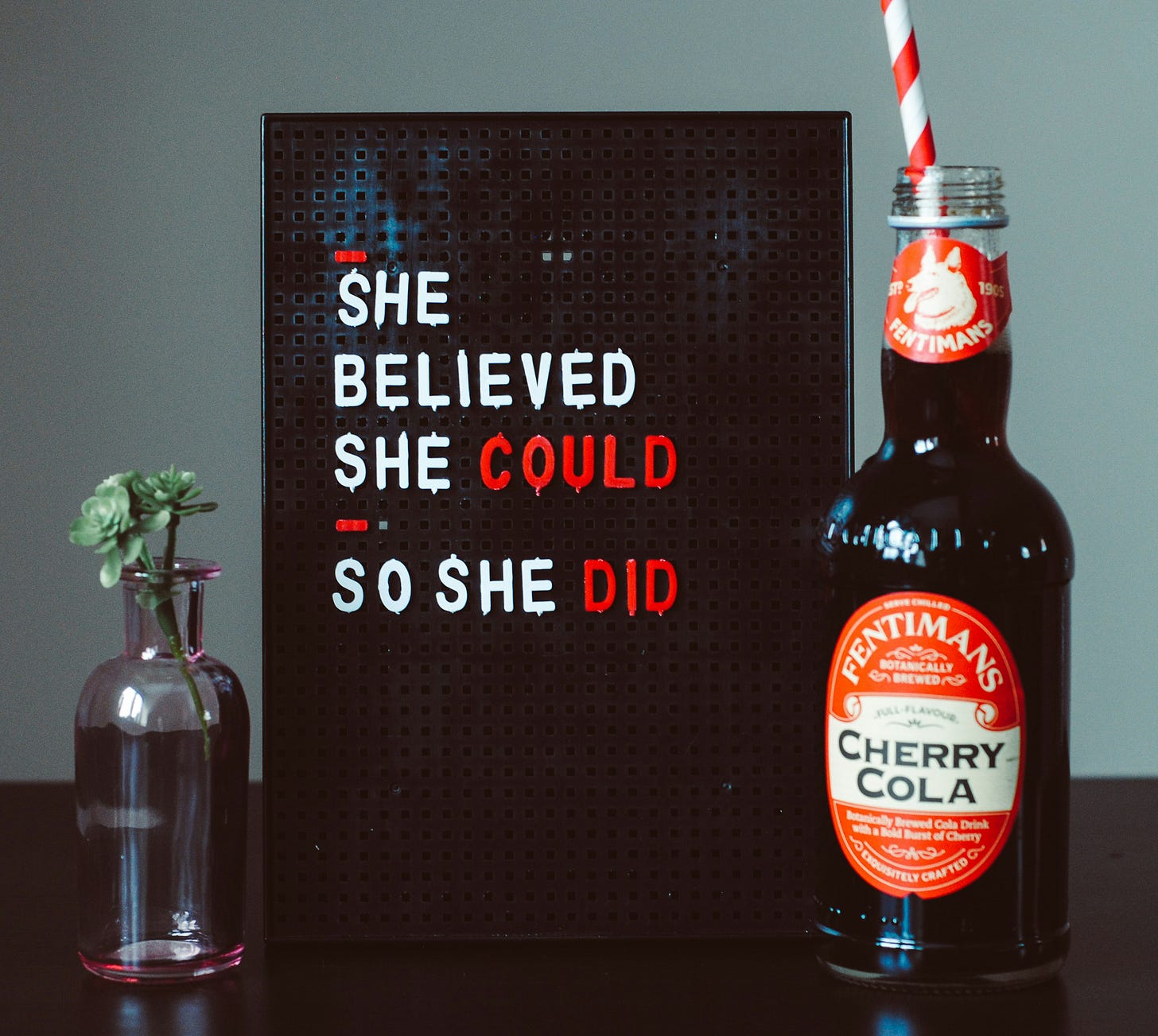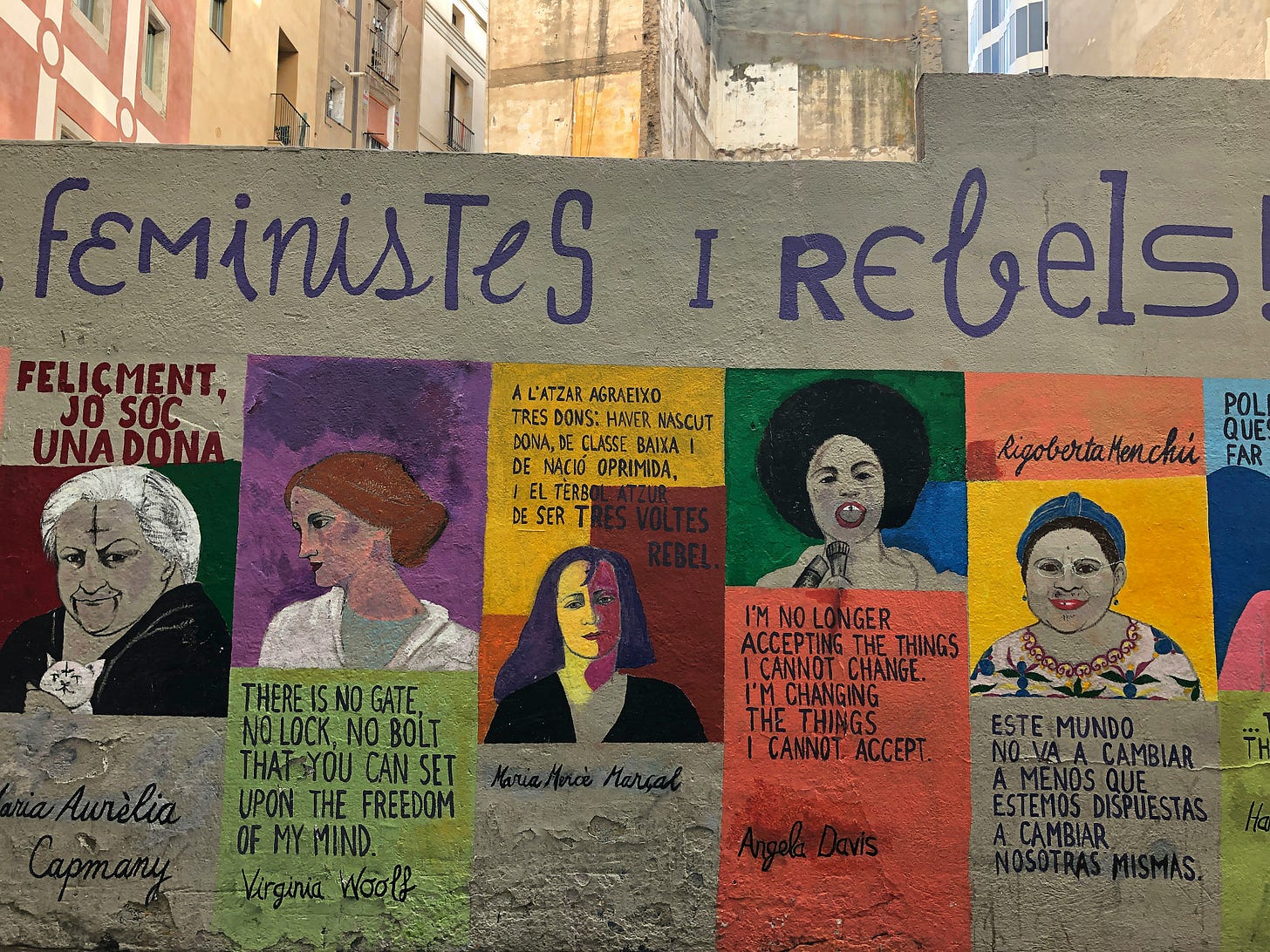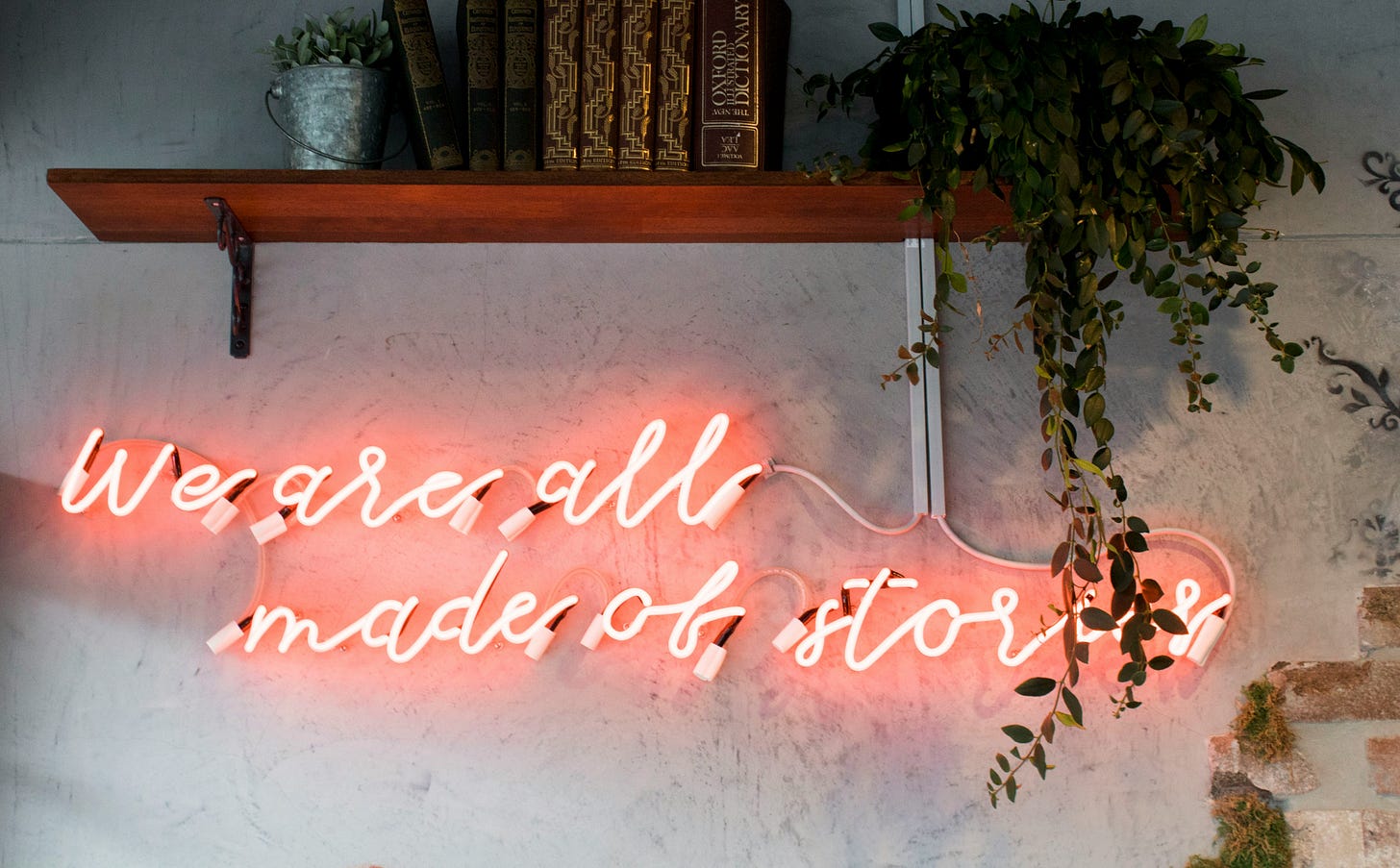An Equinox Petition
May we remember that our lives are not content but contributions towards a better world.
May we know that we are shaped by stories, and in turn, trust we can shape our collective story.
May we resist performance, and instead choose presence.
May we honour ritual as an offering of sacred repair to restore balance in a wounded world.
May we nurture the seeds of justice, even when the soil feels dry.
May we use our voice, our vote, our work, our words in service to the greater whole.
May we be a candle for others to illuminate our shared humanity.
May we show up, imperfectly but meaningfully, for what matters.
May we create a world in which care is currency, connection is sacred, and contribution is celebrated.
May we make so much noise that those who come after us know that we did not turn away.
📸 Photo by Yoksel 🌿 Zok on Unsplash
As the wheel of the year turned, the 69th Commission of the Status of Women (CSW69) came to a close on Friday. Over the past two weeks I have been attending as a UNWomen UK participant on-line. It has been the proverbial rollercoaster of emotions: depressing, uplifting, inspiring, enraging, hopeful, despairing, exciting; but above all, a call to action like no other!
The essay I’m sharing today is an offering; I started it before the CSW69 began and then I found myself weaving through the learnings and insights from the sessions I attended in an attempt to reach a place where there is an legitimate intersection of feminist values, circles and legal advocacy!
It feels unfinished; it is still forming and taking shape but perhaps it will become part of a larger body of work exploring the many themes I try to connect here!
I’m attempting to write in the spaces where nuance lives, where contradictions are held, and where possibility flourishes.
I write as a cis-het, able-bodied white woman living in the UK with a reliable income from my professional role, alongside running Circle School and pursuing my writing. I acknowledge the privilege this affords me; the security to create, reflect, and share without the same precarity or fear many women face. This shapes my perspective and I hold a commitment to listening, learning, and contributing with as much awareness and integrity as I can.
My intention is to share this piece in the spirit of connection and co-creation, with the hope that if it resonates enough with you, you are willing to share your reflections, experiences, insights or resources that might support its (r)evolution into something better.
At the end you will also find an invitation for a simple ritual.
The Branding of Our Lives
Photo by Brooke Lark on Unsplash
There’s a strange expectation in our digital age, that we must not only cultivate a niche in business but in life as well. That every aspect of our existence should be streamlined, monetised, and optimised for an audience: we offer up our meals, our bedrooms, our children, our hobbies, even our rest, for consumption by anonymous spectators.
Whilst I understand the need for clarity when it comes to business, it helps people understand what we do and who we do it for, but it feels like alongside our attention, our very existence has been hijacked!
We are multi-passionate, multi-talented, complex humans. And yet, personal branding insists we distil ourselves into consumable content; not only pimping out our families and friends for an insatiable content machine, but curating vulnerability as a marketing tactic and monetising every passion, talent or hobby we have!
Rather than this being seen as intrusive or inappropriate, the voyeur and the subject are co-conspiring. In our capitalist system this is a relationship based on extraction (from our very souls!) with the lure of a financial exchange at some point. We’re styling our lives for a sale!
Influencers and Politics
Whilst we often (rightly) call out the ethics of big corporations, perhaps we should also be questioning the tactics of online entrepreneurs who offer up their children’s lives to be picked over by strangers, who share intimate moments from private events (yes, maybe with consent, but I know I’m in photos on the internet that I never consented to), and who curate their world with a shiny veneer that conveniently avoids the chaos of these times and the rampaging global crises of war, displacement, genocide, abuse, and the daily revocation of human (women’s) rights for so many.
In the meta-verse, we are inundated with opinions on how to live, what to eat, how to parent, how to decorate our homes, how to cultivate the right ‘mindset’; but so often, when it comes to issues of justice, these loud voices are silent.
They don’t “do politics”.
Except, of course, that’s a political choice. And a privilege. Because when we can afford to “not do politics,” it means the world isn’t structured in a way that forces us to confront its violence daily. It means our survival isn’t on the line.
At the same time, they lament the fact that you can't keep everyone happy; whatever cause you support, someone will tell you that you should be supporting a different cause.
Which is seemingly missing the point of having values and being a demonstration of what you say you stand for.
The Fragility of Feminist Progress
There are also the women entrepreneurs sharing their 7-figure achievements whilst simultaneously purporting to reject feminism. This is not by way of offering a nuanced critique of inclusivity, exploring the historical precedents of spaces for women, or presenting a viewpoint on the challenges and problems of women’s movements around the world.
They say, if they can make it, anyone can; they insist their gender hasn’t held them back.
Whilst I don’t question their lived experience of the world, I do struggle with the logic; this perception fails to acknowledge the campaigning and activism and advocacy of the women who came before us. We can run our businesses and have our own bank accounts because somebody else fought for our right to do so.
For example, women in the UK were only granted equal access to financial independence a year after I was born, when the Sex Discrimination Act of 1975 came into force. This legislation made it illegal for banks and other financial institutions to refuse women a bank account, loan, or mortgage simply because they were female or unmarried. Prior to this change in the law, women typically needed a male guarantor or co-signer (such as a husband or father) to open a bank account, apply for a credit card, or take out a loan!
And alongside these historic gains, the work of researchers, writers and activists such as
(Do It Like A Woman, and Invisible Women), Mary Ann Sieghart (The Authority Gap) and Tarana Burke (Unbound) show us the reality of the world we inhabit.These proclamations fail to acknowledge just how fragile the rights of all but white men are. And these types of statements are often made by successful white women, who use their proximity to power not to challenge the status quo, but to uphold it, seemingly without realising how their privilege shapes their worldview.
Recent events in the U.S. have only reinforced this. The firing of U.S. Coast Guard Commandant Linda Lee Fagan after Trump’s second term kicked off was no coincidence. It was an absolute rejection of Diversity, Equity & Inclusion (DEI) policies, a powerful demonstration of just how fragile our rights truly are.
This is just one example of the larger rollback of equity initiatives and the calculated move to reassert old power structures. It signals an ongoing global assault on any policies that aim to create a more just and equitable world.
The UN’s Gender Snapshot 2022 report, stated that at the current rate of progress, it will take 300 years to eliminate child marriage and 140 years to achieve gender parity in positions of power and leadership. No country is set to achieve gender equality by 2030. And since then, rather than improving, things are worsening!
I explored some of these issues during the 68th Session of the Commission on the Status of Women last year, which you can read here: Can we disrupt a system whilst taking part in it?
It is dangerous to forget how hard-won rights actually are, and in light of the current backlash against women’s rights around the world, we must not take them for granted.
Where Are We Now?
During CSW69 I attended a variety of sessions covering women’s leadership, health, decolonising justice, storytelling and legal empowerment.
In one session, Rosita Sekandari from Afghans for Progressive Thinking stated:
“Women’s advocacy is no longer a choice”
She spoke with emotion of all that women in Afghanistan are banned from taking part in: education, employment, civic life, even women speaking to one another. Women can longer work in healthcare, and at the same time, they are not allowed to be treated by men; so in effect they have no access to healthcare.
Her words, and the resilience of women continuing to organise under such conditions, is a reminder of the many forms that advocacy can take, and of our responsibility to learn from them.
In other sessions, speakers examined the rollback of women’s rights around the world, from Iran’s lowering the legal age of marriage to 9, to the banning of words like “women” and “diversity” in federal funding applications in the US (read more).
These clearly aren't anomalies. We're facing a systemic backlash against women’s power, voices, and autonomy across countries and cultures.
Amidst the data and statistics, one thread wove through every session I attended: stories; the stories we hear growing up, and how we amplify our own stories and learn the art of storytelling to raise awareness and effect societal change.
Stories That Shape Us
Photo by S O C I A L . C U T on Unsplash
One of the sessions I attended was titled A Gaze at Imaging of Women in Folklore and Its Control of Psyche. Speakers from Canada, DR Congo and Nigeria shared how cultural stories pass down identity, values, genealogy, memory, education and survival. They emphasised that power of an oral tradition where stories can change and evolve to meet the times, and highlighted the importance of who the storytellers are.
In some communities, women, particularly elders, are the stewards of the community’s stories. They know where the food is harvested, how the community has survived, how traditions are maintained and how the people survive. Storytelling is a vital way of preserving knowledge, guiding behaviour, and shaping cultural values.
Yet, across time and through the lens of colonisation and Westernisation, many of these stories have been distorted or replaced. Women are often portrayed as weak, submissive, or dependent, glorified only in their roles as wives or mothers. This has profound effects on how girls and women see themselves and how they are seen by society. When girls only hear stories that reduce women to the margins, their imaginations shrink around what is possible.
But stories can also liberate. Reclaiming our myths and folktales can help us rewrite the narrative, not just of the past, but of our present and future. We are all made of stories: the cultural stories we inherit, the personal ones we live, and the ones we choose to share.
And this is where Circle comes in.
In Circle, we honour the stories that have shaped us, and we create new ones through the simple but radical act of speaking and listening. We practise bearing witness to each other’s truth without judgement. We root ourselves in our lineage and imagine a different future.
As always, I am grateful for the work of
and her book, If Women Rose Rooted, which taught me that my cultural heritage is rich with stories showing women not as diminished, but as wise, whole, and necessary.Her more recent books Hagitude and Wise Women continue this work, offering myths and folktales that speak to women in mid-life and beyond. These stories help us reimagine our place in the world, not as diminished with age, but deepened. They encourage us to step more fully into our truth and contribution, grounded in the ancestral wisdom that lives within and around us.
Buried within these folktales, as in our own personal stories, are the seeds of purpose. Seeing ourselves reflected in powerful, multifaceted stories shapes how we see our place in the world and what we believe is possible for ourselves and others. Reclaiming these narratives is not just about self-discovery, but about collective reimagining.
Reclaiming Purpose
This brings to mind Margaret Wheatley's invitation to find our path of contribution; she urges us look for what is needed where we are, and ask whether we are the person to do that work. I have previously written about this here.
What CSW69 reaffirmed for me is that law and legal frameworks matter. They are one of the tools we currently have to fight injustice, and our ability and capacity to understand, access, and use them can make a difference.
One of the sessions I attended was on Feminist Legal Empowerment, in which the speakers defined 'legal empowerment' as taking the law out of books and courtrooms and placing it into the hands of the people. In other words, learning how to articulate arguments, organising collectively, taking part in consultations, monitoring compliance and implementation (laws don't implement themselves!). It means advocating for systemic change and shaping new laws rooted in justice.
Circles, too, have a role to play here. They offer a form of collective care and consciousness-building that can support personal empowerment. In Circle, we practise using our voices. We experience what it means to be witnessed. We experience what solidarity feels like. Circles can help us cultivate confidence to take action, compassion to work effectively with others, and the community to hold us when it’s all too much.
I’m gently exploring where I see a need in my community, and whether integrating my legal training and Circle work might be part of my path of contribution. I’m imagining legal empowerment and advocacy workshops held alongside Circle gatherings; spaces where women can learn their rights, practise using their voices, and experience the solidarity that sustains activism. These wouldn’t just be informational sessions, but also spaces of sharing, reflection, practice and ritual: spaces where we mark our commitments, ground our work in meaning, and create the sacred practices that we need to nourish and support us.
Ritual as Resilience
Photo by Wren Meinberg on Unsplash
What is stirring is rooted in deep, reciprocal work. Connected by the power of ritual, collective care, stories, justice, and sacred practices are a vital way to restore what the world is currently striping away from us: our voices, our agency and our humanity.
This was echoed in the session I attended on Decolonial Healing Justice by the Gender Security Project. The conversation explored how dominant justice systems, rooted in colonialism, are punitive, patriarchal, and heteronormative, leaving little room for true healing.
We were reminded that around the world, Indigenous systems of governance were suppressed or erased, often labelled as threats to the state. In their place came rigid legal frameworks that emphasise procedure over people, and punishment over repair.
In asking ‘Whose justice counts’, decolonial justice calls for approaches that are locally relevant, context-specific, and rooted in healing. One practice central to this vision is ritual.
Ritual and symbolism are transformative tools that can help us rebalance and reclaim our power. This can look like cooking together, co-creating art, somatic practices in community, vigils and Circles; simple yet meaningful actions that draw us back to one another.
As Zimbabwean feminist Hope Chigudu says:
“Learn the power of rituals. As much as our bodies require food and nourishment, our souls (be they personal or organisational) require rituals to stay whole. Rituals are also necessary because there are certain problems that cannot be resolved with words alone.”
Daring to Flourish
To flourish in these times is to resist being reduced to a product. It is to reclaim our time, our energy, and our voices from a culture that wants us distracted and consuming, rather than present and aware.
Our lives are not marketing campaigns. They are the communities, the connections, and courageous acts of care that we engage with.
This season calls for rootedness in what is real: relationships, stories, solidarity, and ritual. These are the threads that have carried women through generations. They are the quiet, sacred practices that sustain us and offer strength in struggle.
An Equinox Ritual
Plant a Seed with Intention
If you feel called to honour the sacred rhythms of the Earth alongside the cycles of your own life, the Equinox serves as a reminder of the balance that exists within and around us, inviting us to embrace the themes of reconciliation and harmony.
A simple but meaningful ritual to do alone, or with friends and family is to take some time for reflection on the season that has passed, and to intentionally plant a seed for the season that is here.
Journaling: The journaling prompts that I share in my Equinox Circles are:
What is working and can be further nurtured?
How can I tend to those aspects of my work or life?
What is not working and needs to be weeded out?
How can the space created by what has been weeded out, support what needs to be nurtured?
Planting: Choose a seed: herb, flower, or vegetable, and plant it in a pot or garden. As you press it into the earth, speak aloud your intention for this season. Water it regularly as a way of tending not only to the seed but to your commitment.
As always, I hope that something in what I share resonates with you and that this feels like a conversation in Circle. It is a privilege to read your words, and stand witness to your journey and current experience of life.
Daring to flourish, in these (r)evolutionary times
p.s. I love sharing books and I love supporting Indie bookshops. If you can’t get to a local bookshop or prefer to order on-line, the links that I share take you to the author’s website or to bookshop.org. On that site you can choose a specific bookshop to support and they’ll receive 30% of the cover price (or almost all of the profit) or, 10% of the cover price contributes to an earnings pool that is evenly distributed among participating independent bookshops each month. In addition, I am a member of their affiliate program which means I receive 10% commission and an additional 10% goes to Indie bookshops. So it’s a win for book lovers and bookshops!
















There is so much in here Mitle - I don't know where to start my comment! I have worked on many of these issues globally for years - so I have a very similar perspective to the one you share here. I found it interesting to read your thoughts on influencers and the ways they do not take political stances which is a political stance. I remain fascinated by the women who 'succeed' but seem unable to see the systems we live in and why other women can't just hustle a bit to make it too. I have come across this a lot, especially in my working life and it amazes me how difficult it is for humans to see past their own lived experiences. I find I quote intersectional research and frameworks constantly now - as I think that is the only way to truly understand how systems work and why they benefit some people more than others. As you point out - a lot of the gender progress made in the UK - is relatively recent and so while we benefit from those changes - we can push for more in our lives and in the systems.